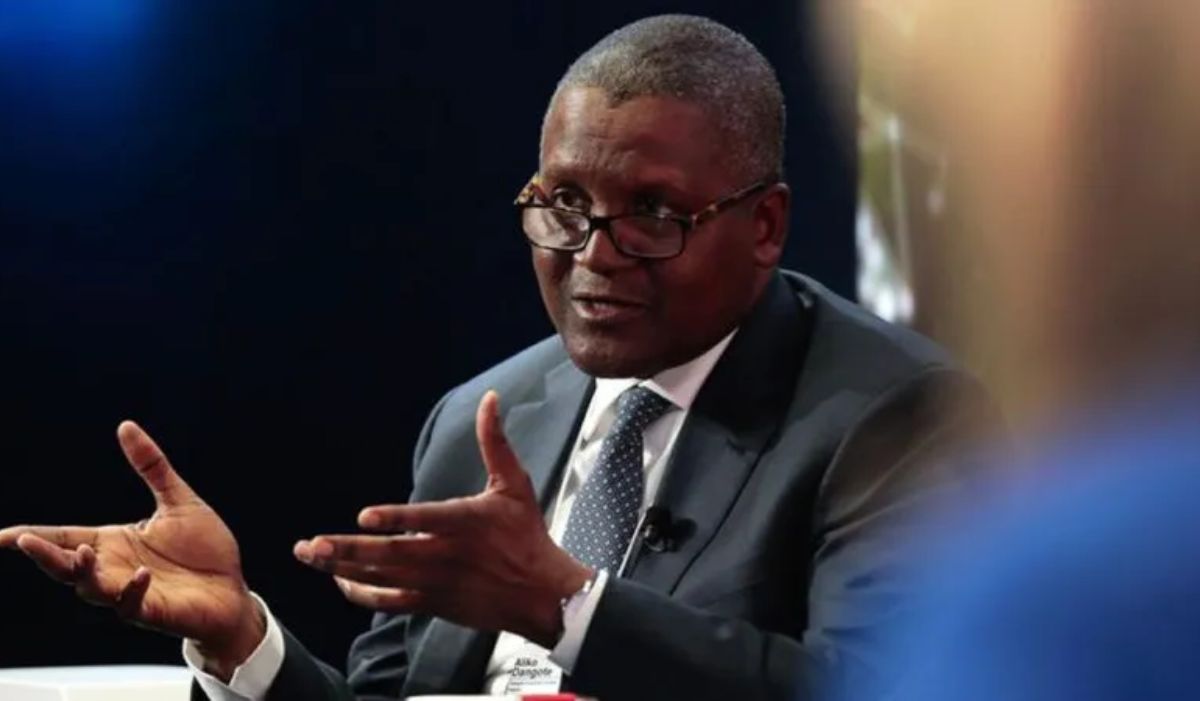Dangote: Africa Loses $90 Billion Yearly to Fuel Imports Over Refining Gaps

Aliko Dangote, Chairman and CEO of Dangote Industries Limited, revealed that Africa experiences annual losses of approximately $90 billion from importing refined petroleum products due to insufficient domestic refining infrastructure.
At Tuesday’s West African Refined Fuel Conference in Abuja, Dangote emphasised that the continent’s dependence on fuel imports drains economic resources while exposing markets to inferior petroleum products rejected by European and North American standards.
The event, co-hosted by Nigeria’s Midstream and Downstream Petroleum Regulatory Authority (NMDPRA) and S&P Global Commodity Insights, assembled regulators, industry executives, and policymakers to develop sustainable strategies for West Africa’s petroleum sector.
Dangote highlighted the disparity between Africa’s crude production of seven million barrels daily and its limited local refining capacity, processing only 40% of its 4.3 million-barrel daily refined product consumption. This contrasts sharply with Europe and Asia, which refine over 95% of their consumption domestically.
“So, while we produce plenty of crude, we still import over 120 million tonnes of refined petroleum products each year, effectively exporting jobs and importing poverty into our continent. That’s a $90 billion market opportunity we’re handing over annually,” Dangote observed.
He criticised the economic inefficiency of exporting crude oil while importing refined products that could be manufactured locally, noting this practice costs the continent employment opportunities, investment capital, and industrial development.
Discussing the Dangote Refinery project, he described overcoming numerous technical, commercial, and logistical obstacles, including land preparation, infrastructure development, and regulatory compliance.
The project employed over 67,000 workers at its peak, with 50,000 being Nigerian nationals, and necessitated constructing a specialised seaport and establishing the world’s largest granite quarry. Despite technical achievements, Dangote highlighted ongoing challenges including currency volatility and difficulties obtaining Nigerian crude at competitive rates.
“Rather than buying crude directly from local producers, we’ve often had to negotiate with international traders who buy Nigerian crude and sell to us at a premium. Ironically, we now import millions of barrels monthly from the US and other countries,” he revealed.
Dangote criticised elevated port fees and regulatory charges in Nigeria, stating these costs exceed those faced by Asian and Indian refiners. He condemned the inconsistent fuel quality standards across African nations as trade barriers that discourage regional commerce in refined products.
He called on African governments to standardise fuel specifications and implement protective policies for domestic refiners, similar to measures adopted by the US, Canada, and the EU.
“We are now facing increasing dumping of cheap, often toxic, petroleum products — some blended to standards that would never be allowed in Europe or North America,” he cautioned.
NMDPRA Chief Executive Farouk Ahmed noted that despite West Africa’s significant hydrocarbon production, substantial refined product consumption, and growing refining capabilities, the region remains dependent on global pricing benchmarks from Northwest Europe, US Gulf Coast, Mediterranean, Singapore, and Arab Gulf markets.
Ahmed explained that while these benchmarks enjoy global acceptance, they frequently fail to capture the unique supply chain characteristics, market dynamics, and economic conditions specific to Africa.
He advocated for regional pricing mechanisms that would promote transparent price discovery, enhanced market development, and improved energy accessibility through collaborative stakeholder engagement.
Such regional pricing frameworks would facilitate petroleum product trading growth, additional storage and supply infrastructure development, and real-time pricing data reflecting West African market fundamentals.
Ahmed reported that West African fuel supply capacity has expanded through enhanced refining capabilities in Nigeria, Ghana, Niger, Senegal, and Côte d’Ivoire, currently totalling 1.335 million barrels per day.
Current regional fuel trading data show 2.05 million metric tonnes of monthly gasoline trading, comprising 1.44 million metric tonnes (69%) from imports and 0.61 million metric tonnes (31%) from regional refinery production.
House Committee on Petroleum Resources (Downstream) Chairman Ikeagwuonu Ugochinyere warned against dissolving the NMDPRA and Nigerian Upstream Petroleum Regulatory Commission (NUPRC) boards, arguing such actions would damage investor confidence and undermine the Petroleum Industry Act.
Ugochinyere characterised these regulatory bodies as products of extensive legislative reform efforts, warning that arbitrary leadership changes would discourage investment.
“A regulator is not appointed to be liked but to lead with focus and integrity. Arbitrary dissolution in the middle of tenure sets a dangerous precedent and repels investors,” he stated.
The legislator commended NMDPRA’s accomplishments, including securing $1.2 billion in modular refinery investments, achieving a 35% reduction in fuel smuggling, implementing the Automated Downstream System, and expanding compressed natural gas conversion capacity.





